Urban Development
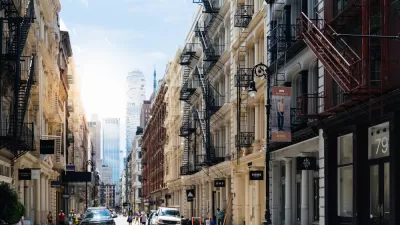
Op-Ed: SoHo and NoHo Need a Zoning Overhaul
Two SoHo residents argue that outdated zoning holds the Manhattan neighborhoods back, requiring special permits or variances for many current residential and commercial uses.

YIMBYs Leading the Pro-Density Fight
Minneapolis has become an inspiration to other cities about how to successfully challenge NIMBY factions that oppose density and zoning reform.

Water Situation Changes for Sprawling Phoenix-Area Development, Delayed by the Recession
The Phoenix metropolitan area is growing again, but the water supply isn't. Many development plans derailed by the Great Recession won't find it easy to start where they left off.

Using Gas Tax Revenue to Remove Traffic Lanes Adds to Road Diet Debate
Reducing the number of traffic lanes to improve bike and pedestrian safety can be inherently controversial when auto travel times are increased, and it can upset motorists further when they learn gas taxes are funding those safety improvements.
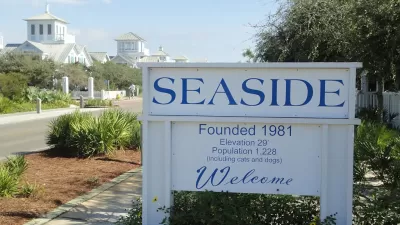
New Urbanism and Jacobs: A Tangled Disconnect
New Urbanism was in part born of the criticisms of 20th century planning principles popularized by Jane Jacobs, but Jacobs infamously derided the new school of thought.

One Response to Gentrification: Banning Bay Windows and Balconies
Neighborhoods in Philadelphia are undergoing rapid, unprecedented change. Proposed legislation would ban the architectural signifiers of that change.
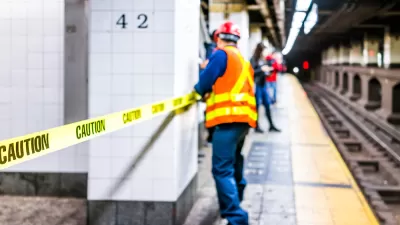
Why New York's Transportation Infrastructure Costs So Much
It's been remarked upon before. Infrastructure in New York City is a cost nightmare compared to other global cities. Accountability is lacking, Josh Barro writes, but MTA also suffers from an "institutional lack of power."
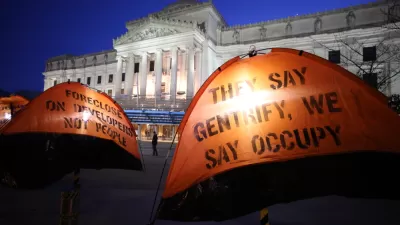
Watch: 'Revitalization Without Gentrification'
Chuck Marohn of Strong Towns sits down for an interview with Derek Avery, "a community-conscious real-estate developer based in Dallas, TX."

Does Oakland Have a Future as a Public City?
The city is experiencing significant growth and development, but it has a complicated history of booms and lags and its civic future is uncertain.
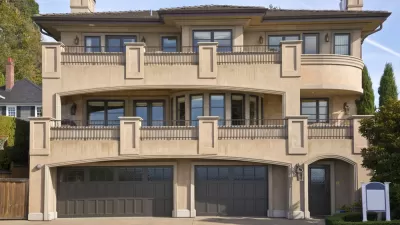
Zoning Changes Would Mean More Granny Flats and Fewer McMansions in Seattle
Is this a two-birds-with-one-stone situation?
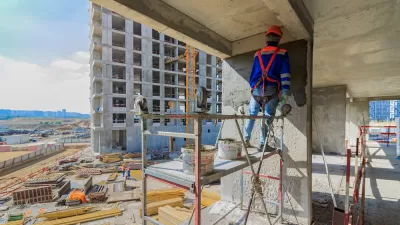
Research: Financial Practices Partly Responsible for the Rental Affordability Crisis
Zoning and the economy aren't the only factors in neighborhood change—financial regulations and policies, sometimes seemingly unrelated, also have an effect.

Public Drinking Could Be Allowed in Another City Not Named Las Vegas or New Orleans
Covington, Kentucky, located across the Ohio River from Cincinnati, is considering a new entertainment district that would allow drinkers to carry open alcoholic beverages in public during special events.
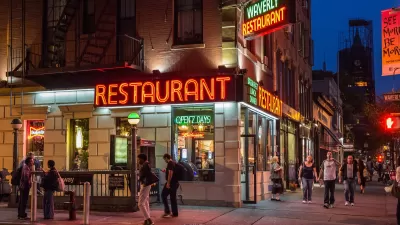
Nighthawks No More: N.Y.C. Diners Face an Uncertain Future
Diners are part of social and cultural landscape of New York City, but many are closing as owners contend with increasing development pressures.

Nevertheless, the Youthful Preference for Urban Living Persisted
A forthcoming study, to be published by the Journal of Regional Science, finds the urban preferences of younger generations growing over the past three decades.
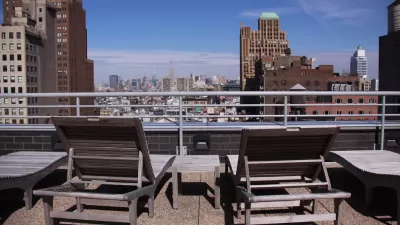
Creating Suburban Exclusivity in the City
City life is being sold as a convenient version of the suburbs, with similar amenities minus the time-consuming commute.
Mobile Parks and Recreation Fill a Need
Several cities are using mobile park and recreation services to augment existing parks and fill gaps in parks. LA County parks planner Clement Lau describes a sampling of mobile programs.

New on Netflix: How Street Vendors Create Vibrant Cities
Street vending has been a contentious issue in many places, but this part of the informal economy is important to the social and economic well-being of cities.

How Wealthy Suburbs Block Outsiders From Economic Opportunity
Exclusionary zoning and land use tactics have a long history in the United States, retaining startling relevance in contemporary times. A deep investigation into Connecticut land use politics reveals just how entrenched these practices are.

What Do Cities With Fewer Cars Have in Common?
A new analysis looks at how income and population density are related to car ownership and some ways that the design of cities can help lessen car dependence.
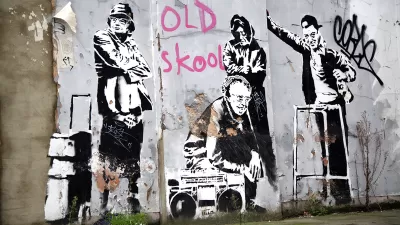
An Urban, Technologically Enabled Era of Retirement
A feature article in Marketwatch describes a future for retirement communities that look more like WeWork than the golf course-adjacent exurban communities of the 20th century.
Pagination
Urban Design for Planners 1: Software Tools
This six-course series explores essential urban design concepts using open source software and equips planners with the tools they need to participate fully in the urban design process.
Planning for Universal Design
Learn the tools for implementing Universal Design in planning regulations.
Borough of Carlisle
Smith Gee Studio
City of Camden Redevelopment Agency
City of Astoria
Transportation Research & Education Center (TREC) at Portland State University
City of Camden Redevelopment Agency
Municipality of Princeton (NJ)


































